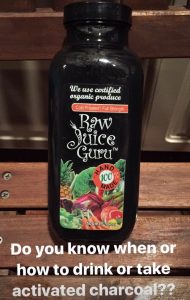 What is Activated Charcoal
What is Activated Charcoal
Activated charcoal has been used for thousands of years. Today, it’s even used in hospitals. When someone is poisoned, activated charcoal could help. It binds toxic chemicals like a sponge. Then it ushers those poisons out of the body. That got the health industry thinking: “If activated charcoal can suck up drugs and toxic chemicals, what else can it do?” As they found out, a lot! It has a ton of health-boosting benefits—but it also can be quite dangerous if consumed incorrectly.
Activated charcoal is a unique form of carbon that is oxidized at very high temperatures to give it a massive surface area and incredibly porous properties. Just 2 grams of activated charcoal has roughly the equivalent surface area of a football field.
It’s millions of microscopic pores have a strong negative charge, which attracts positively charged intestinal gases and toxins like a magnet. Because of this, activated charcoal can bind to and eliminate compounds many thousands of times its own weight.
Activated charcoal is an excellent gastrointestinal detoxifier that absorbs intestinal gas and a variety of other toxins as it passes through your system. It is also a particularly potent remedy for smelly flatulence as it binds to highly odorous compounds like hydrogen sulphide (the so-called rotten egg gas).
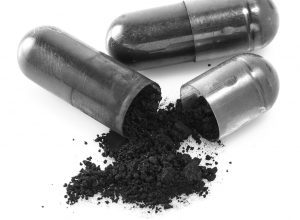 How to Use Activated Charcoal
How to Use Activated Charcoal
Activated charcoal is perhaps the most powerful of all the known cures for intestinal gas and flatulence. It does have a problem though. It works too well.
If you typically drink more than one juice a day, only one should contain charcoal. Since activated charcoal can can bind to as much as 100 times its own weight, downing it in large doses can cause the detox process to become too harsh, flushing vital nutrients that are stored in fat tissues in the body. While the words “flushing” and “fat” in the same sentence are usually a good thing, in this case, it’s quite the opposite.
Timing of your charcoal cocktail is also key. Ideally, you should only sip activated charcoal and water three or four hours after your last meal. Throughout the day it’s vital to fuel the body with fruits and veggies which have the vitamins, minerals and phytonutrients the body needs to stay healthy. Since activated charcoal is so absorbent, drinking it during the day or too close to a meal can interfere with the absorption of these nutrients.
Research has demonstrated that activated charcoal will pass harmlessly through your gastrointestinal tract, without being metabolized in any way. It does, however, absorb any positively charged substances it comes into contact with.
This is a good thing when it comes to toxins, as most are positively charged and are drawn to activated charcoal. Once bound to it, they are eliminated when you go to the toilet and can do no further damage in your body.
Unfortunately, beneficial substances like medications, vitamins, minerals and other nutrients are also often positively charged. So now your asking “but wait my juice bar mixes charcoal with so many other ingredients so am I not absorbing those nutrients from the drink?” Answer NOPE.
This means that activated charcoal should not be taken anywhere near or with any food, prescription medicine, supplements and well away from any kind of food. So activated charcoal in water is all you need, mixing it with anything else is useless since all those nutrients will pass your body and not be absorbed, so your flushing your money down the toilet.
Charcoal can’t tell the difference between toxins, meds, vitamins and minerals. If there is something you have been prescribed by a doctor that is keeping you healthy and safe, do not under any circumstance drink charcoal.
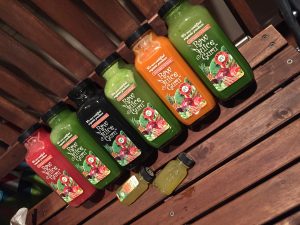 Activated charcoal should be taken at least 2 hours before eating with a big glass of water. To be safe, make that 2 hours before taking any medications or supplements to be sure it doesn’t interfere with them.
Activated charcoal should be taken at least 2 hours before eating with a big glass of water. To be safe, make that 2 hours before taking any medications or supplements to be sure it doesn’t interfere with them.
For maximum effectiveness, activated charcoal also needs to be taken well after eating. 3 hours would be a minimum, with 4 hours recommended for a large meal. And always always drink a litre of water with it and after it so constipation does not occur.
Also be aware, if you do start taking activated charcoal in high doses, it will likely turn your stools grey or even black. This is harmless so don’t be concerned by it. In fact, it can be a helpful indicator of just how long food takes to travel through your digestive tract. Also taking activated charcoal wrong and too often will cause constipation and many ailements since it is stripping your body of all nutrients. so please take at maximum 2 times a week.
If a night of alcohol drinking leaves you feeling dead to the world, charcoal may help take you out of your misery but it’s not a craze that should be used as a hangover cure. Due to its strong cleansing properties, activated charcoal can help remove toxins from the liver and bloodstream after a long night of drinking. Keep in mind, however, that charcoal will not absorb any of the alcohol left in your system, so it won’t be of much assistance if you’re still feeling a bit tipsy the morning after your night out.
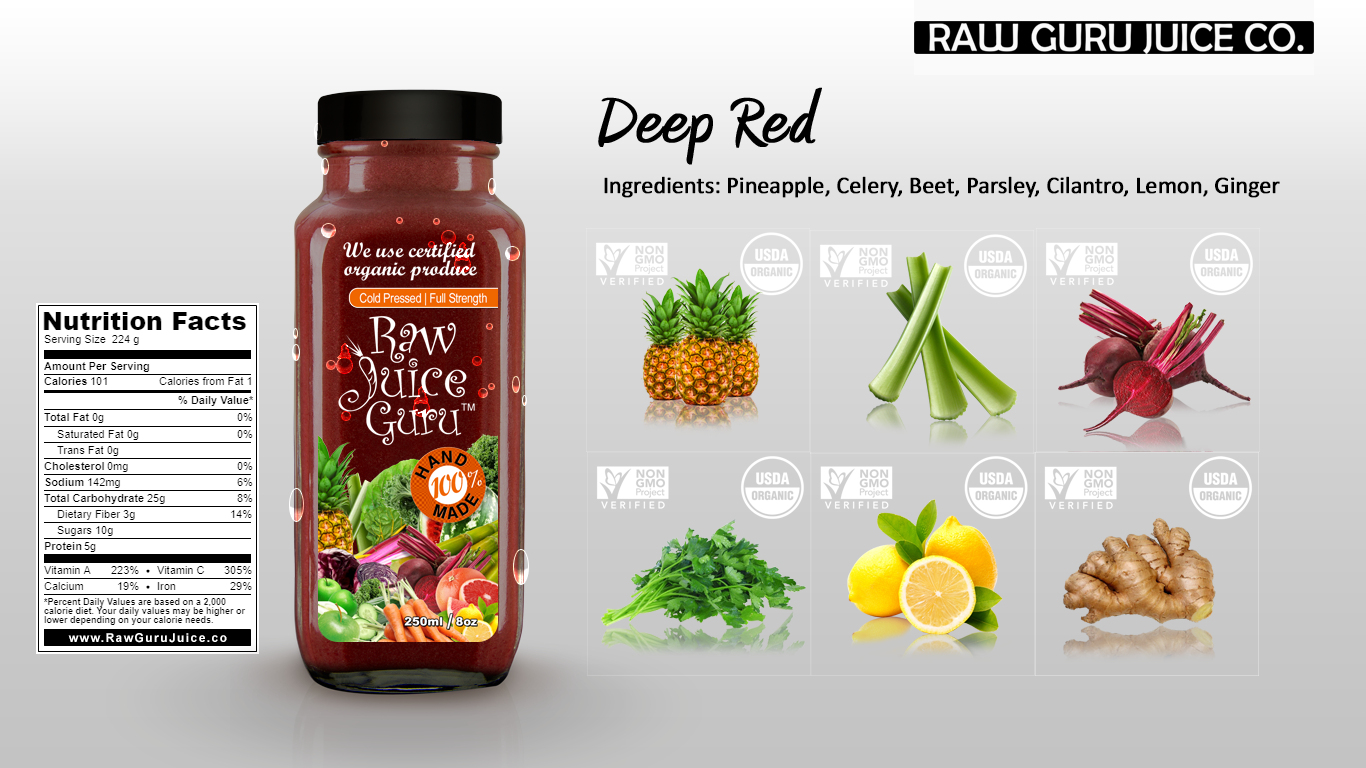

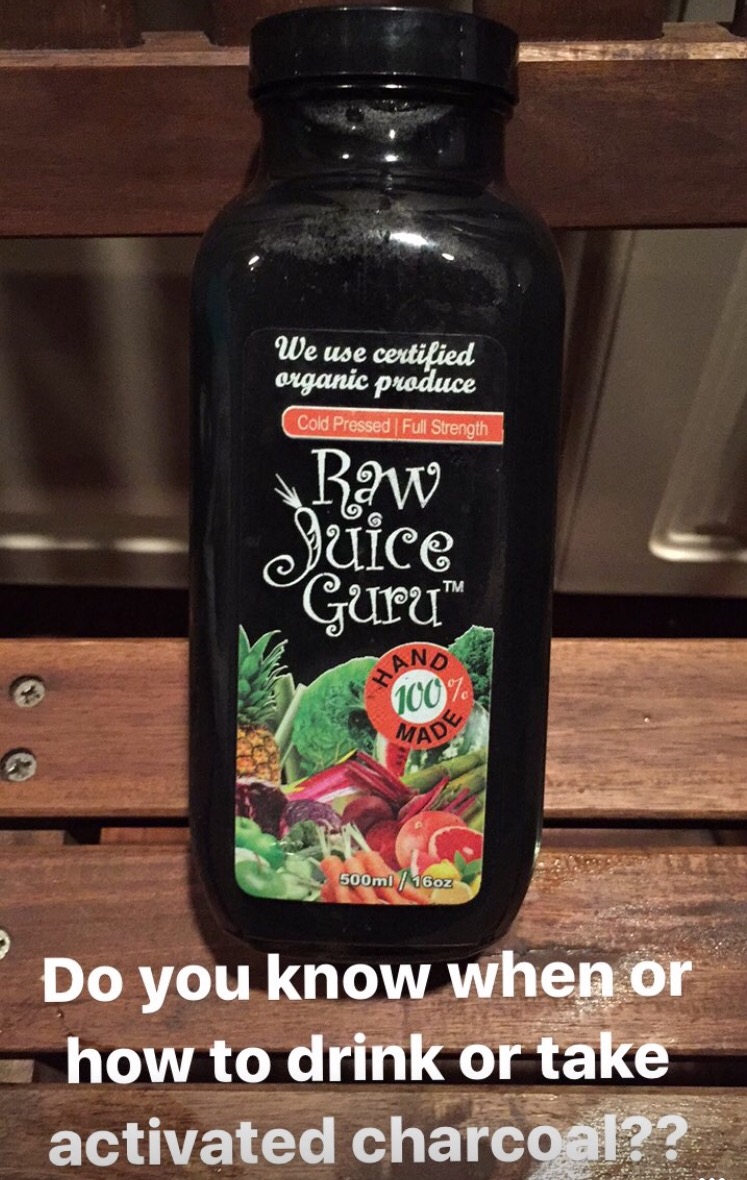
 The gut, our second brain. Now recognized by many health practitioners to be the root cause of disease, and where healing starts.
The gut, our second brain. Now recognized by many health practitioners to be the root cause of disease, and where healing starts.